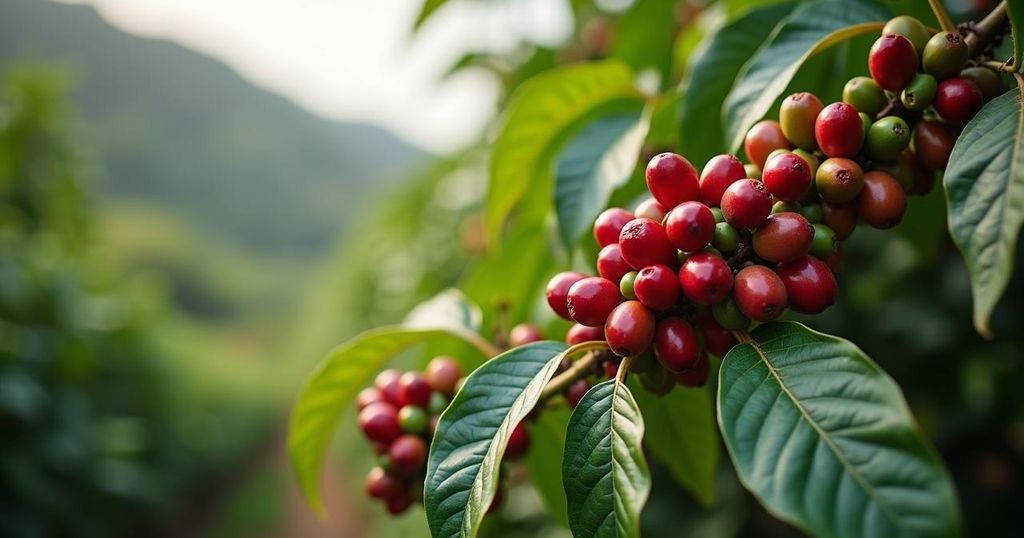Vietnam’s Drought Disrupts Coffee Production: Implications for Global Prices

Vietnam’s worst drought in a decade threatens its robusta coffee bean crop, which may fall 10% short of targets, leading to historically high prices. This situation, along with Brazilian frost affecting arabica production, contributes to ongoing global coffee shortages, reflecting the significant impact of climate change on agriculture and potential food price inflation.
A significant drought in Vietnam is adversely affecting the production of robusta coffee beans, which could lead to higher prices for coffee globally. As the second-largest coffee producer in the world and the largest cultivator of robusta beans, Vietnam’s current drought represents the most severe in a decade, following two consecutive years of declining yields. Experts predict that this year’s harvest may fall short of annual targets by as much as 10%, pushing robusta futures to their highest levels in nearly half a century. Additionally, Brazil’s recent frost has impacted arabica bean production, contributing to a third consecutive year of global coffee shortages. The interplay between climate events in different regions underscores the vulnerabilities in agricultural systems worldwide and portends potential increases in food prices and inflation.
Vietnam plays a crucial role in the coffee market, specifically in robusta bean production, which is known for its strong flavor and higher caffeine content compared to arabica beans. The ongoing drought in Vietnam is exacerbated by extreme climatic conditions, a consequence of broader climate change patterns affecting agricultural yields globally. As the impacts of climate variations manifest more frequently, farmers are likely to experience significant challenges, resulting in not only reduced harvests but also elevated commodity prices. Such market dynamics put pressure on central banking responses to inflation, which often overlooks fluctuations in food prices. The current situation conveys an urgent need for adaptation strategies within the agricultural sector, potentially leading to growth in agricultural technology investments aimed at increasing crop resilience and productivity.
In summary, the drought in Vietnam is poised to significantly impact the global coffee market, particularly in terms of robusta bean prices. Coupled with adverse weather events in other coffee-producing regions, this scenario underscores the urgent implications of climate change on agricultural production and consequent food price inflation. It also highlights the potential for investing in technologies that enhance food security and agricultural resilience. The future of coffee prices is uncertain, but it undoubtedly remains a vital concern for consumers and investors alike.
Original Source: finimize.com








